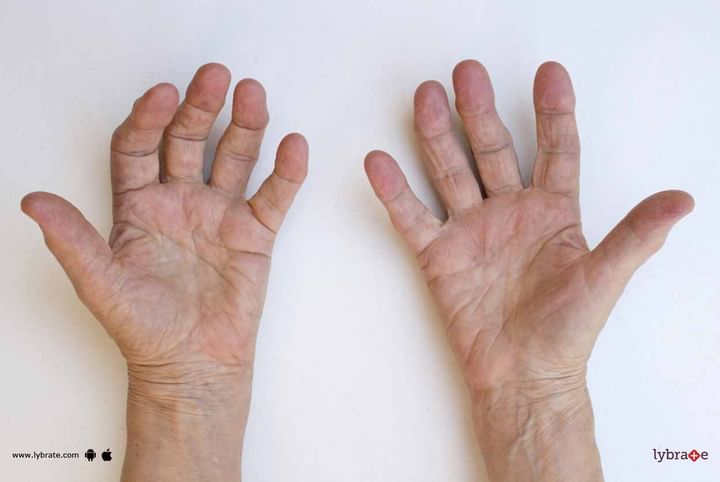Rheumatoid Arthritis - Know Its Symptoms And Treatment!
Rheumatoid arthritis is an auto-immune disorder (wherein the immune system attacks the body tissues) resulting in joint inflammations. Joints, which are used more frequently, such as knees, fingers, shoulders, wrists, elbows and hips get affected more commonly by this disease. Rheumatoid arthritis might also affect the adjoining tissues, such as the ligaments and tendons. While doctors are still skepticle about what exactly causes the disease, a significant dip in immunity might cause the inflammation of the joints, resulting in people who suffer from obesity, people in the age group of 40-60, people who have a family history of this condition, regular smokers and women being more prone to this disease.
The symptoms of Rheumatoid arthritis include but are not limited to:
1. Intense pain in the morning
2. Recurring instances of mild fever along with the pain.
3. Abnormally enlarged joints turning red in colour, resulting in intense pain.
4. Stiffness in the joints
5. Significant increase in the pain in low-temperature conditions
6. Being severely tired and experiencing an alarming decrease in weight
Treatments
If rheumatoid arthritis is not diagnosed immediately, it might lead to future complications, such as blood cancers in the lymph nodes, osteoporosis (a medical condition resulting in brittle bones), infections, blockages in and gradual stiffening of the arteries. The treatment of rheumatoid arthritis includes:
- Prescribed dosage of non-steroidal anti-inflammatory drugs such as ibuprofen and Naproxen will help. Anti-rheumatoid drugs and steroid drugs such as ‘prednisone’ help in the reduction of inflammation and pain. The medication will be prescribed depending on the severity of the condition.
- Performing regular exercises in order to maintain the flexibility of the joints with due consultation from the physiotherapist.
- In extreme conditions, the doctor might suggest surgeries which include:
- Complete replacement of the joint with a metal prosthetic
- Repairing of tendons if the tendons are severely affected
- Synovectomy which will remove the damaged portion of the joint
- Joint fusion which will readjust the joint and reduce the pain



+1.svg)
